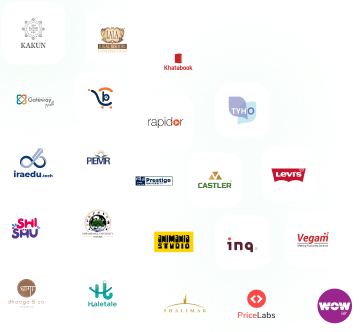Table Of Content
When building a website, one of the biggest questions you'll face is:
Should I use WordPress or build my website from scratch using HTML, CSS, and JavaScript?Both approaches have their strengths and limitations. The right path depends on your technical expertise, goals, and long-term vision. This article explores each in-depth, helping developers and business owners make an informed decision without the fluff.
What Are We Comparing?
Before diving in, let’s define both options:- WordPress is a content management system (CMS) used widely for blogs, business websites, and online stores. It provides a user-friendly backend, themes, and plugins to manage your site without deep technical knowledge.
- Custom HTML/CSS/JS websites are built from scratch. Developers hand-code each section, page, and interaction — offering complete control and flexibility, but requiring technical expertise.
Ease of Use & Setup
WordPress
WordPress is easy to install and set up — most hosting providers offer one-click installs. Once you’re in, the dashboard makes it simple to create content, update pages, and manage plugins without needing to write code.Custom HTML/CSS/JS
Setting up a custom site is more hands-on. You'll need to create the folder structure, link your CSS and JS files, and manually write the HTML for each page. There’s no dashboard — all updates require editing code.Design Flexibility & Aesthetic Freedom
WordPress
Themes and page builders like Elementor or Gutenberg provide plenty of design options. You can make your site look good without being a designer, though heavy customization might require some CSS tweaks. The downside? Pre-built themes can sometimes feel rigid.Custom HTML/CSS/JS
There are no boundaries — you’re not tied to a theme or template. Whether it's a full-screen video header, complex animation, or a unique layout, custom code allows you to create exactly what you imagine. It takes more effort, but gives you total freedom.Performance & Speed
WordPress
Performance depends heavily on the theme and plugins you use. Some sites get bloated with unnecessary code, slowing down load times. Optimizing WordPress typically involves using caching plugins, image compressors, and sometimes external services like CDNs.Custom HTML/CSS/JS
With no CMS overhead or plugin bloat, custom-built websites are typically faster. Since you only load what you need, the code is cleaner and leaner, leading to quicker page loads — especially useful for landing pages or marketing sites.Security & Vulnerability
WordPress
Security can be a concern if themes and plugins aren’t updated regularly. Because WordPress is so popular, it's often targeted by bots and hackers. However, using security plugins, strong login protection, and good hosting helps reduce risk.Custom HTML/CSS/JS
Custom-coded static sites are naturally more secure. There's no backend login, no plugins, and often no database — which limits the surface area for attacks. If you're not adding dynamic features, this setup keeps things simple and safe.SEO (Search Engine Optimization)
WordPress
SEO plugins like Yoast or Rank Math guide you through best practices — meta tags, keywords, readability, XML sitemaps, and schema markup. This makes WordPress a strong choice for users who don’t want to manually handle every SEO element.Custom HTML/CSS/JS
You have full control over how your content is structured, from heading hierarchy to meta data. But everything must be handled manually — there are no plugins to automate optimization. If you know SEO fundamentals, this can give you a leaner, more efficient setup.Cost & Budgeting
WordPress
While WordPress itself is free, there are additional costs. Premium themes and plugins may cost anywhere from $30–$200. Maintenance, backups, and hosting are also factors, though shared hosting plans are usually affordable.Custom HTML/CSS/JS
There are no licensing or plugin costs, but development time can be expensive. You may also need ongoing developer support to update or modify the site. On the upside, static hosting solutions like GitHub Pages or Netlify are often free or very cheap.Scalability & Future Growth
WordPress
You can start small and grow as needed. With plugins, you can add features like eCommerce (via WooCommerce), memberships, multilingual support, or booking systems. WordPress can handle large blogs or complex sites when paired with the right hosting.Custom HTML/CSS/JS
Basic static sites don’t scale well if you need frequent content updates or user interactions. But with frameworks like React or Vue, or by integrating a headless CMS, you can build scalable and modern web applications. This approach gives you control, but also adds development complexity.
Wrapping It Up
Choosing between WordPress and a custom-coded website isn’t about which is “better,” but which is better for you.If you need a site up and running quickly, with flexibility, built-in SEO tools, and little technical setup — WordPress is a strong choice.If you have a dev team (or are one), and want performance, complete control over every pixel, and a lightweight structure — a custom HTML/CSS/JS site offers that creative and technical freedom.Understanding your goals, timeline, and resources will help you make the right decision — whether you're launching a small business site or developing the next big web product.FAQs
Q1. Can I start with WordPress and switch to custom later?
Yes, though it will require effort to migrate content, design, and functionality.Q2. Is WordPress secure enough for a business site?
Yes — as long as you update plugins/themes regularly and use security best practices.Q3. Are static sites good for SEO?
Absolutely. If structured well, they can load faster and rank better — especially for simple content-driven sites.Q4. Can I combine both approaches?
Yes! Some developers use WordPress as a headless CMS and build the frontend using React, Vue, or static HTML.The world’s First zero commission platform
Hire tech partners effortlessly
 If you're a non-tech founder looking for an agency or a tech founder looking for engineers.
If you're a non-tech founder looking for an agency or a tech founder looking for engineers. You can get your 5 best matches from 2800 in 5 mins, with 1000 data points tracked.
You can get your 5 best matches from 2800 in 5 mins, with 1000 data points tracked. Connect directly with no credit card needed!
Connect directly with no credit card needed!
You’re just a click away from the best talent.


